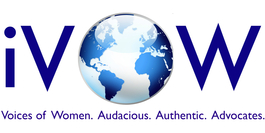Our host, Jenni Prisk, interviews Peace Writer, Serena Pelka, who tells the story of Fatma Mehdi Hassam of Western Sahara, a Women PeaceMaker at the Joan B. Kroc School of Peace Studies at the University of San Diego during 2016.
Listen Here
 Serena Pelka Peace Writer for Fatma Mehdi Hassam [ 17:49 ] Play Now | Play in Popup | Download (205)
Serena Pelka Peace Writer for Fatma Mehdi Hassam [ 17:49 ] Play Now | Play in Popup | Download (205)
Excerpts from Interview
- “I learned that the Western Sahara people are very peaceful (contrary to what we read in the news).”
- “At 7 years of age, Fatma fled to Algeria. Many people have not seen their families for 30 years.”
- “The absence of war doesn’t necessarily mean peace.”
- “Storytelling and peace building is a really unique combination.”
Serena Pelka Biography
Serena Pelka holds a degree in environmental governance from the University of Guelph in Ontario, Canada. A member of Guelph’s Oxfam group, she helped create spaces to engage in dialogue about gender equality in politics and international women’s rights. She studied abroad at Lund University in Sweden, and served as an intern for the Joan B. Kroc Institute for Peace and Justice. She used her research and writing skills to develop educational and marketing materials for the Women PeaceMakers program, which fostered her interest in the narrative process as a powerful tool of change.
The interview takes place at the Joan B. Kroc School of Peace Studies at the University of San Diego where Serena spent concentrated time with Fatma while she was in residence as a Women PeaceMaker in the Institute for Peace and Justice (IPJ).
More About The IPJ Peace Writers
Since 2003, the Joan B. Kroc Institute for Peace and Justice (IPJ) at the University of San Diego has welcomed four women peacemakers each year from around the world.
The women reside at the University of San Diego Joan B. Kroc School of Peace Studies for two months and share their stories, which are documented by four Peace Writers.
These Peace Writers tell their story of living in conflict and building peace in their communities and nations. The Peace Writers interview their PeaceMakers daily and produce a document that includes narrative stories and complementary components, such as a historical summary of the conflict and a table of best practices in peacebuilding as demonstrated by the work of the PeaceMaker.
Monica McWilliams, Chief Commissioner, Northern Ireland Human Rights Commission comments on the importance of this program:
“You are writing women into history. You are making sure their stories are not forgotten. You are making sure those stories are passed on to the next generation.”



